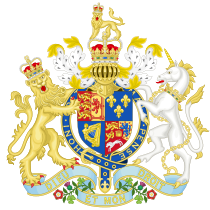The Vagabonds and Beggars Act 1494 (11 Henry VII c. 2) was an Act of Parliament passed during the reign of Henry VII. The Act determined that:
Vagabond is an Old French word used to describe those who wandered from place to place, especially those without regular occupation or other obvious means of support.[2]
Background
The Black Death of 1348–1349, during which an estimated 40−60 per cent of the population of England died,[a]Estimates vary from about 20 per cent up to more than 60 per cent. A 2016 paper by the archaeologist Carenza Lewis suggests that, in rural settlements in eastern England, the population declined by 45 per cent to 65 per cent.[3] had led to a severe shortage of labour, encouraging many workers to roam the country in search of the highest wages.[4] That posed a problem for landowners, who were no longer able to reply on the ready availability of a cheap and tractable workforce.[5] So, beginning with the 1349 Ordinance of LabourersLargely ineffective royal proclamation intended to address the acute labour shortage in the wake of the Black Death., a series of laws was introduced to re-establish the social order by suppressing the movement of workers and restricting the level of their wages, which can be seen as the earliest laws dealing with the poor.[4]
Notes
| a | Estimates vary from about 20 per cent up to more than 60 per cent. A 2016 paper by the archaeologist Carenza Lewis suggests that, in rural settlements in eastern England, the population declined by 45 per cent to 65 per cent.[3] |
|---|

